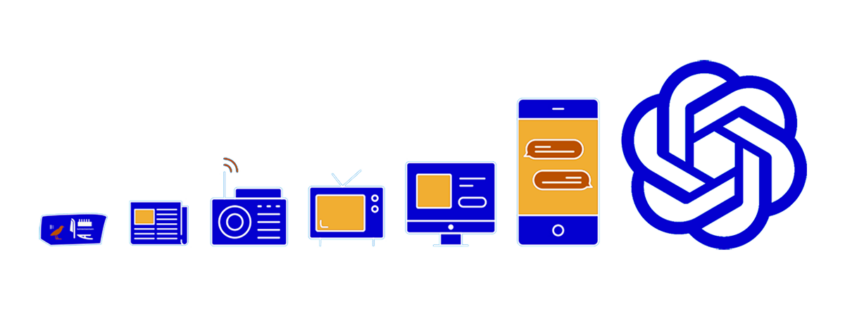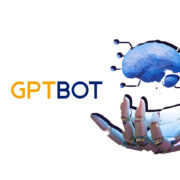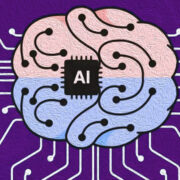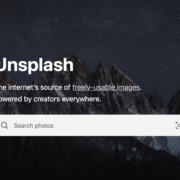Marketing Evolution, from Sales to AI
Marketing has come a long way since its inception. The industry has evolved from simple sales tactics to complex strategies that involve understanding consumer psychology, creating engaging content, and leveraging digital channels.
In this article, let’s explore marketing evolution or, better, revolution through history and highlight some critical milestones in its development.
The Early Days: Sales and Advertising
In the early days of marketing, the focus was primarily on sales. Salespeople would go door-to-door or visit businesses to sell their products.
They relied on their persuasive skills and product knowledge to convince potential customers to purchase.
According to one of the world’s most popular marketers, Philip Kotler, one of the first marketing pioneers was Ernest Dichter, who helped companies understand consumer motivations and create more effective advertising campaigns.
He was followed by Alfred Paulitz, who focused on survey research and demographic analysis. Julius Rosenwald, Lester Wonderman, and David Ogilvy were other notable figures who contributed to the growth of advertising as a marketing tool.
The Birth of Marketing Departments
As businesses grew and competition increased, companies began to see the need for dedicated marketing departments.
These departments were responsible for conducting consumer research, identifying target markets, and creating promotional materials such as brochures and advertisements.
Over time, these departments evolved into separate entities with budgets and objectives. However, marketers must remember that their primary goal is to support the sales force in effectively selling products.
The Broadening of Marketing
Marketing has expanded beyond just selling goods and services to encompass various other aspects.
Some sub-branches that emerged in recent years are:
- Place marketing or territorial marketing: promoting specific locations whose identity and sense of place can be created from abstract space and pushed through detailed narratives touching the emotions of locals. Think also of virtual worlds grown in the metaverses and the virtual places and communities inside them.
- Social marketing (don’t confuse it with social media marketing or SMM): supporting social causes – think of social enterprises, sustainability, proximity, direct democracy, petitions, etc.
- Political marketing: promoting political candidates or parties – think of the vast discourse around fake news, infodemics, deep fakes, propaganda or better crapaganda, scandals such as Cambridge Analytica and so on. In many countries, a large part of online advertising is purchased by political forces, which benefit from public funding. Therefore public money collected through taxation ends up in the hands of foreign digital platforms to promote propaganda and falsehoods (besides causing pollution since digital communication has a severe cost in terms of energy resources). It’s a silly mechanism that aims at an ever-shrinking audience, considering the constant collapse of the electoral turnout, whatever the context or the country.
- Personal branding: creating a unique individual persona – LinkedIn is an excellent playground to test it, but also other social networks where part of the users are turned into creators, conquering consumption time which traditionally was an exclusive territory of traditional media such as newspapers, radio and TV. Video is still there, but popularity is fragmented among an exponentially growing number of individuals who moved entertainment from a few TV channels to many micro channels on leading platforms such as YouTube, Twitch, TikTok, Instagram, Snap, Lemon8, etc. All those platforms tend to copy each other formats once proven successful.
This broadening of marketing has led to new challenges and opportunities for marketers. For example, social marketing aims to influence behaviour positively by using marketing tools such as persuasion, framing, and context setting.
Digital word of mouth, also pushed by nano and micro-influencers, is more effective than traditional ATL advertising channels, which are expensive and old-fashion (some TV commercials famous until a few decades ago today appear ridiculous and are often object of parodies on leading contemporary media platforms, such as TikTok).
The Dark Side of Marketing
Despite its many benefits, marketing has also been criticized for its adverse societal impacts. Critics argue that marketing can be intrusive, manipulative, and deceptive.
Some practices, such as hard selling, planned obsolescence, and greenwashing, have been called into question for their ethical implications. In many circumstances, marketing has been considered a dirty job, pushing lies to achieve business goals even when the product or service is not delivering the value promised to the audience. Unfortunately for marketing professionals, this field has shallow entry barriers, so many scoundrels found it easy to position themselves as expert or gurus, promising irrealistic objectives via persuasion and rituals that, in the long term, lost effectivity.
Prominent marketing critics include Ralph Nader, Rachel Carson, Vance Packard, John Kenneth Galbraith, Naomi Klein, and Michael Sandel.
These individuals have raised concerns about the safety of products, environmental impact, hidden persuasion techniques, and the moral limits of marketing.
Who are the World’s Best Marketers?
According to Philip Kotler, some of the world’s most successful marketers include Ingvar Kamprad (IKEA), Richard Branson (Virgin Group), Walt Disney (Disney), Herb Kelleher (Southwest Airlines), Anita Roddick (The Body Shop), Bill Gates (Microsoft), Steve Jobs (Apple), and Jeff Bezos (Amazon).
They have demonstrated exceptional skills in understanding consumer needs and creating innovative products and services that resonate with their target markets.
I would also add Elon Musk. To some, he is a crazy genius, to others, just crazy. He certainly is not a marketer (but also, the previously mentioned entrepreneurs were not marketers either). However, he is still an innovator in communication, which moved from the classic advertising formats to the product itself.
Is marketing a Science?
The best marketers aren’t marketers. Someone said that in a company, everyone has to be a marketer. And someone else added that a product that sells doesn’t need marketers. But again, a product that sells might not need marketers because it embeds what marketing is supposed to do.
So marketing principles have to be somewhere – better everywhere, in a coral effort to bring consistency across the entire organization, rather than in a department that has to push products created with a company-centric approach without listening to the market, as a good marketer is supposed to do.
Marketing is not a science. Science must be refutable – Popper dixit. Marketing cannot be since his experiments are not based on absolute conditions but on many variables.
Like any other “social” science, it’s the outcome of practices, points of view shaped by space and time, and – not least – specific platforms which change the foundations on which theories are built.
Besides the broad marketing principles, no practice lasts forever, like in “real” sciences such as physics or biology, which can only be affected by a paradigm change when there’s a disruptive discovery.
In marketing, there’s no discovery but only the realization of better approaches and adaptation to constantly changing conditions. Marketing is a kind of incremental skillset chasing trends and shaping knowledge according to its applied environment.
The Future of Marketing
As we move further into the digital age, marketing will continue to evolve and adapt to new technologies and consumer behaviours.
The rise of the internet has led to increased transparency for businesses, making it crucial for companies to be authentic in their marketing efforts.
Marketers must also consider the broader implications of their actions on society and the environment. As we face global challenges such as unemployment and climate change, marketers must find ways to create value while minimizing negative impacts.
Can we say marketers aren’t needed anymore because of AI, closer than ever to the so-called AGI or strong AI? The answer is yes if a marketer’s skills don’t evolve. Marketing is not a job for laggards.
Artificial General Intelligence (AGI) is the representation of generalized human cognitive abilities in software so that, faced with an unfamiliar task, the AGI system could find a solution. Some experts presume that GPT5 by OpenAI, expected by the end of 2023, could be very close to AGI.
Until the 1980s, there were armies of typewriters. They all disappear with the arrival of the first word-processing software. I remember that dactylography was still a subject taught in accounting schools in Italy when I started. In those years, in parallel, I was already using WordStar on a PC 80286 with the old good floppy disks still surviving nowadays in the form of an icon or emoji to represent the action of saving data on local storage.
Same discourse for SEO: for at least a decade, some people have claimed that SEO is dead, and they’re partly right: the old way of doing SEO is certainly dead – or at least useless. But ranking on a search engine is still crucial nowadays for any business.
And probably the next step will be AIO, which stands for Artificial Intelligence Optimization: getting noticed by AI scrapers to allow them to quote our business among the answers provided to final users, which could be our prospects and, eventually, clients.
Nothing will ever be the same, and most of the tasks still carried out by humans are fast-moving to machines. If robots kill manual work, AI kills intellectual work. Governments will have hard-time finding solutions for the massive unemployment storm coming worldwide.
A universal basic income (UBI) will soon become a need more than a dream.
The evolution of marketing has seen significant changes from its early focus on sales tactics to a more comprehensive approach that encompasses various aspects such as advertising, research, digital channels, and social causes. As we move into an increasingly connected world with new challenges and opportunities represented by the exponential growth of Artificial Intelligence capabilities, it will be fascinating to see how marketing continues to adapt and evolve. Interesting times…
Eager to stay up-to-date with the latest industry knowledge? Have a look at the rank!
Marketing best-sellers books today
Do you need help with your market strategy?
Contact me to discuss your case
and get your first advice free of charge








